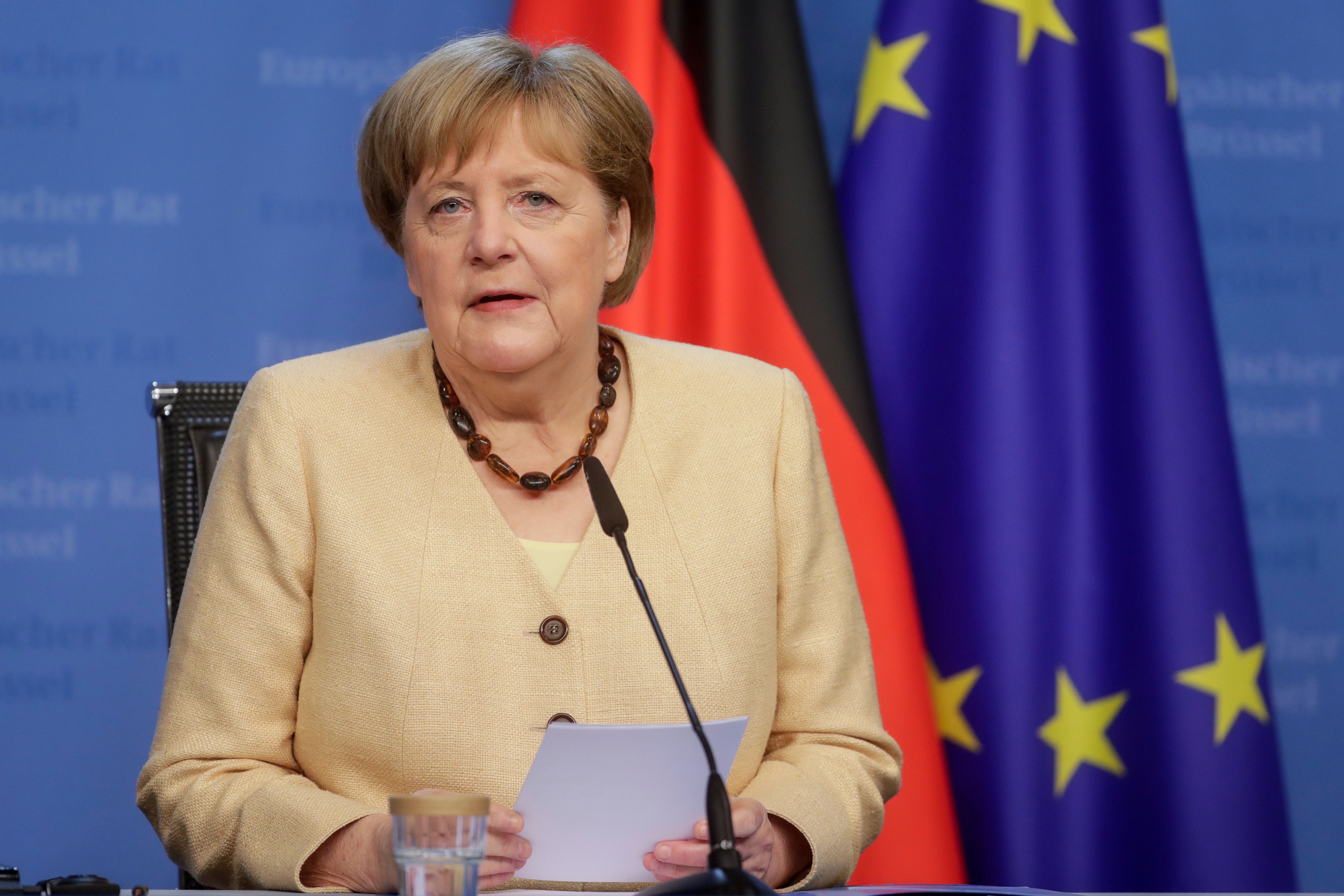Germany's Merkel defends idea of summit between EU and Putin
German Chancellor Angela Merkel has defended the idea of holding a European Union meeting with Russian President Vladimir Putin — an idea that was rejected last week by eastern EU members

German Chancellor Angela Merkel on Monday defended the idea of holding a European Union meeting with Russian President Vladimir Putin arguing that it would offer an opportunity to confront Putin with European concerns.
The idea was rejected last week by eastern EU members.
At a summit on Friday, EU leaders agreed only to "explore formats and conditionalities of dialogue with Russia.” There was no mention of any high-level meetings or plans for a summit with Putin, an idea that Germany and France had pushed. The outcome reflected deep divisions in the 27-nation EU's approach to Moscow.
The EU is concerned that Putin is turning increasingly authoritarian and wants to distance himself from the West. Both it and the NATO military alliance are struggling to bring Russia back to the table. U.S. President Joe Biden’s meeting with Putin this month was a rare exception.
“The concern was that we perhaps wouldn't be able to put up a united front, (and) such a summit of course requires very intensive preparation,” Merkel said at a question-and-answer session with German and French lawmakers. She said it would allow Europeans to “address all the questions that weigh on us and also those on which we want to cooperate.”
Pointing to worries such as “hybrid attacks” that Germany, France, Italy and the Baltic nations have faced, Merkel added: “It's better not just always to talk about this among ourselves, but to confront the Russian president with these things and to say that beneficial cooperation can't take place on such a basis.”
“This was made very clear by President Biden regarding cyberattacks, and why should Europe not be able to do exactly that?” Merkel said.
But the Baltic states are among those deeply concerned about reaching out to Moscow when the Minsk agreements meant to bring peace to Ukraine are still not being respected. On the other hand, Russia is the EU’s biggest natural gas supplier, and plays a key role in a series of international conflicts and issues linked to Europe’s strategic interests, including the Iran nuclear deal and conflicts in Syria and Libya.
“The relationship between Russia and the European Union is really not good at the moment, but even in the Cold War we talked to each other,” Merkel said. “So I think not speaking isn't suited to solving the problems.”
She added “we have moved one step forward but are not there yet.”